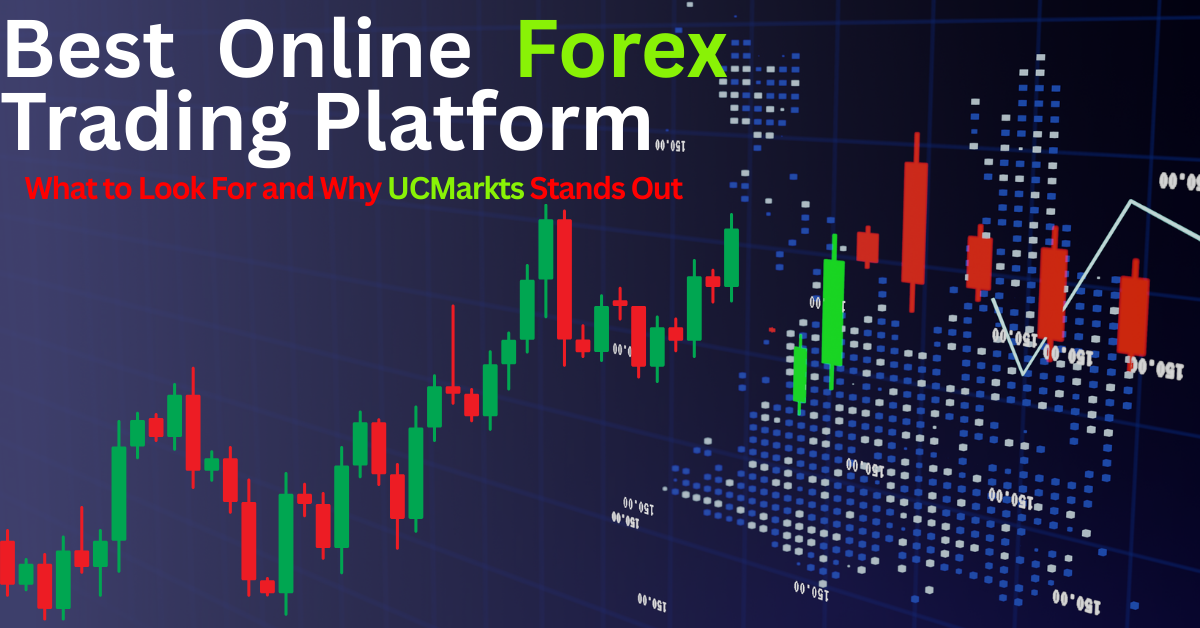
May 13, 2025 |
By ![]() vicky
vicky
Over the past few years, the world's financial environment has been undergoing a sudden change. The pressures of globalization that previously drove global economies toward greater integration are now in reverse gear. Increasing geopolitical tensions, supply chain reconfigurations, and rising attention to economic nationalism are all fueling an extraordinary new trend: deglobalization.
While others are evolving, the question is: Is your portfolio prepared for the shockwave of deglobalization? At UCMarkts, we assist traders and investors in leading the way with global trends, and today we're taking a deep dive into what this macroeconomic change means for you.
What Is Deglobalization?
Deglobalization is the steady unwinding of global economic integration. This entails declining global trade, foreign investment across borders, and international supply chains. Drivers behind this trend are:
Trade wars and tariffs
Manufacturing reshoring
Geopolitical tensions (e.g., US-China competition, Russia-Ukraine conflict)
National security issues on technology and energy
Emergence of populism and protectionism
What was once a borderless movement of goods, labor, and capital is increasingly fragmenting. The change has enormous implications for investors and traders.
How Deglobalization Affects Financial Markets
Greater Market Volatility
Deglobalization brings with it uncertainty. Political realignments, policy shifts, and supply interruptions tend to result in eruptions of market volatility. Currencies are especially volatile in response to political instability and trading realignments—making forex trading an effective means of trading risk and capturing opportunity.
Emerging Market Realignment
As traditional trade partnerships weaken, some emerging markets may lose favor, while others gain strength due to new alliances. Traders must watch closely which countries are becoming new manufacturing or tech hubs—and which are falling behind.
Commodity Price Fluctuations
Decreased worldwide cooperation can produce shortages in necessary commodities such as oil, rare earth metals, and foodstuffs. Such shocks can greatly affect commodity-linked currencies and equities. Using UCMarkts, you are able to monitor and trade such markets in real time.
New Winners and Losers in Equities
Firms that are dependent on international supply chains or export markets risk declining margins and logistical difficulties. Domestic-oriented industries, in turn, can gain from protectionism. Early recognition of these changes is the cornerstone of portfolio adjustment.
How UCMarkts Guides You Through the Age of Deglobalization
At UCMarkts, we know that weathering these unpredictable times takes more than rudimentary tools. That's why we offer a one-stop-shop for traders and investors who want to take advantage of macroeconomic change.
Here's how we equip you:
Advanced Market Analytics
Harness our advanced tools to dissect global trends, predict market directions, and make well-informed trades.
Access to Forex, Commodities, and Global Indices
Diversify your portfolio across a broad range of instruments to hedge against potential risks or seize new opportunities as markets shift.
Educational Resources
Understand how macroeconomic drivers such as deglobalization influence currency pairs, equities, and commodities through our continuously updated webinars, tutorials, and expert blogs.
Risk Management Features
As turbulent markets loom on the horizon, effective risk management is critical. UCMarkts prepares you with features such as stop-loss, negative balance protection, and personalized trading strategies.
Final Thoughts: Adapt or Be Left Behind
Deglobalization is more than a political catchphrase—it's a force remaking the financial environment. Investors and traders who realize this change and adapt will be better positioned to defend and increase their wealth.
Whether you're trading forex pairs impacted by geopolitical tensions, or shifting your investments to new market leaders, UCMarkts has the tools, insights, and support you need to succeed.
Is your portfolio positioned for what comes next? Join UCMarkts today and be positioned for the future of world finance—your way.




